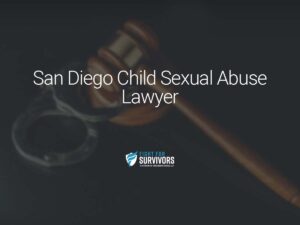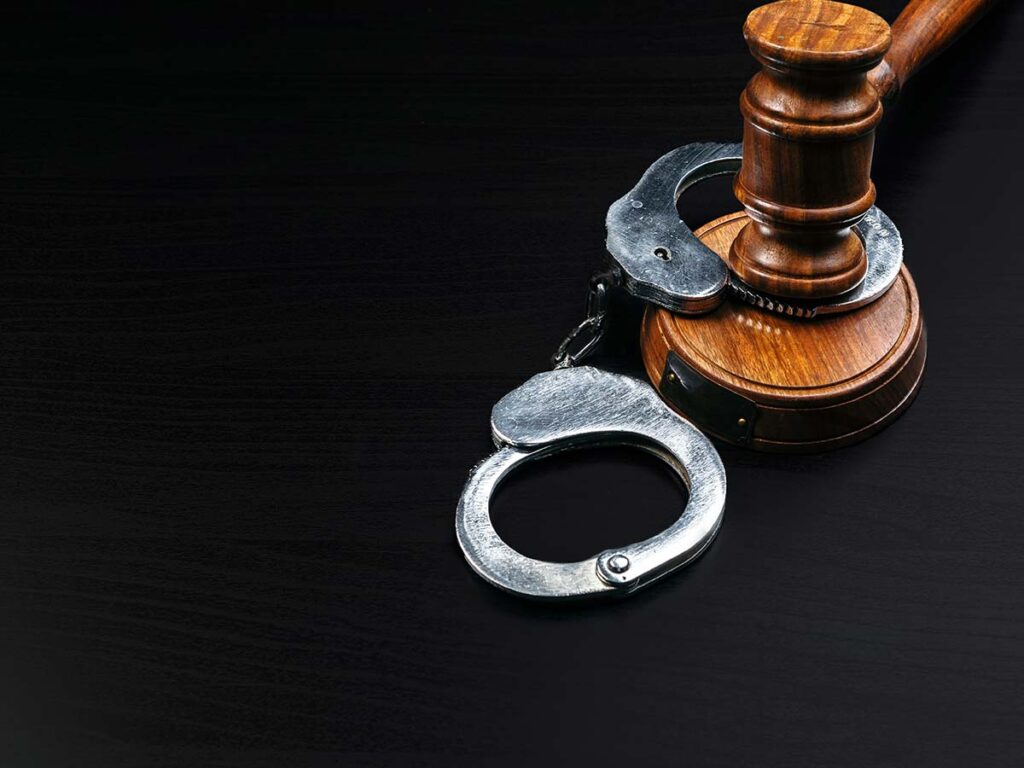
Child sexual abuse is a pervasive issue in San Diego, reflecting broader societal challenges requiring urgent action. California has one of the highest rates of reported child abuse among the ten largest states, highlighting the critical need for intervention and awareness. In San Diego County alone, approximately 1,000 cases of child sexual abuse are reported each year.
Most of these cases involve children under the age of 12, underscoring the vulnerability of the youngest members of our society. These statistics emphasize the necessity for protective measures, increased vigilance, and a commitment to holding offenders accountable.
At Greenberg Gross LLP, we are dedicated to protecting the rights of children and pursuing justice for survivors. Our experienced attorneys provide compassionate legal support to survivors and their families, helping them navigate California’s legal framework and seek the justice they deserve.

Understanding Child Sexual Abuse in San Diego
Child sexual abuse extends beyond physical harm, leaving profound emotional and psychological scars that can last a lifetime. Survivors often face significant challenges in their relationships, mental health, and overall well-being.
To combat this issue, it is essential to:
- Increase community awareness about the signs and impacts of child sexual abuse.
- Strengthen protective laws and support systems for survivors and their families.
- Commit to proactive measures that create safer environments for children.
By understanding the scope and implications of child sexual abuse, we can work together to prevent future incidents and provide timely intervention for those affected.
Legal Definition of Child Sexual Abuse in California
California law defines child sexual abuse as any sexual activity involving a minor. This includes acts such as:
- Molestation and exploitation.
- Voyeurism and indecent exposure.
- Child pornography.
Key Legal Principles:
- Minors Cannot Consent: Children under 18 cannot legally consent to sexual acts. Any such activity is inherently non-consensual and constitutes abuse.
- Broad Protections: California law recognizes various forms of abuse, including non-physical acts that rely on manipulation or coercion.
- Severe Penalties: The legal framework imposes strict penalties on offenders to deter abuse and protect children.
These laws provide a robust foundation for holding abusers accountable and safeguarding children from harm.
Identifying Potential Abusers and Recognizing Signs of Abuse
Common Abusers:
- Individuals in positions of trust, such as teachers, coaches, daycare providers, or family members.
- Perpetrators often exploit their access to children and manipulate situations to carry out abuse.
Signs of Child Sexual Abuse:
- Behavioral Changes: Withdrawal, anxiety, depression, aggression, or regression to earlier behaviors like bed-wetting.
- Physical Indicators: Pain, unexplained injuries, or reluctance to change clothes.
- Emotional Indicators: Low self-esteem, difficulty forming relationships, or an age-inappropriate knowledge of sexual acts.
Why Children May Not Report Abuse:
- Fear of retaliation or disbelief.
- Feelings of guilt, shame, or confusion.
Vigilance from parents, guardians, and educators is crucial in recognizing these signs and taking swift action to protect children.
Holding Responsible Parties Accountable
Accountability is a cornerstone of justice for survivors of child sexual abuse. Legal action can be taken against:
1. The Abuser
- Criminal charges and civil lawsuits hold offenders accountable and ensure they face the full extent of the law.
2. Negligent Institutions
- Organizations that fail to supervise employees, conduct background checks, or implement safeguarding measures can be held liable.
- Examples include schools, religious institutions, and daycare centers.
3. Mandatory Reporters
- Professionals such as teachers, healthcare providers, and social workers are legally required to report suspected abuse. Failure to do so can result in liability.
Legal Recourse:
- Survivors can pursue criminal penalties for abusers and civil lawsuits for financial compensation.
- Compensation may cover medical expenses, therapy, and emotional damages.
By holding all responsible parties accountable, survivors and their families can achieve justice and work toward a safer future for children.
Steps to Take If Your Child Has Been Sexually Abused
If you suspect or know your child has been sexually abused, take the following steps immediately:
1. Report the Abuse
- Contact local law enforcement and child protective services to report the abuse.
- Prompt reporting can protect the child from further harm and initiate an investigation.
2. Seek Legal Guidance
- Engage a specialized sexual abuse attorney to guide you through the legal process and protect your child’s rights.
- Confidentiality protections are available for survivors filing civil lawsuits in California.
3. Preserve Evidence
- Keep records of medical reports, communications with your child, and other relevant documentation. This evidence is critical for building a strong legal case.
4. Provide Emotional Support
- Seek counseling and emotional support for your child. Therapy can play a vital role in their recovery and help them process the trauma.
Taking these steps can make a significant difference in your child’s healing journey and the pursuit of justice.
How Our Team at Greenberg Gross LLP Can Help
At Greenberg Gross LLP, we are committed to providing compassionate and effective legal representation for survivors of child sexual abuse. Our attorneys:
- Offer free consultations to discuss your case and explore your legal options.
- Work on a contingency-fee basis, ensuring you only pay us if we win your case.
- Provide confidential and trauma-informed support to alleviate stress during the legal process.
We understand the sensitive nature of these cases and strive to create a safe, supportive environment for survivors and their families. Our experienced team is dedicated to holding abusers and negligent institutions accountable while seeking the justice and compensation you deserve.
Frequently Asked Questions
What constitutes child sexual abuse under California law?
Child sexual abuse includes molestation, exploitation, voyeurism, indecent exposure, and child pornography. Any sexual activity involving a minor is classified as abuse due to the inability of minors to consent.
How can I recognize signs of child sexual abuse?
Behavioral changes (e.g., withdrawal, aggression), physical signs (e.g., injuries, pain), and emotional indicators (e.g., low self-esteem) may signal abuse. Remaining vigilant and proactive is essential.
What should I do if I suspect my child has been sexually abused?
Report the abuse immediately to law enforcement and child protective services. Preserve evidence and consult a specialized sexual abuse attorney to protect your child’s rights.
Can organizations be held accountable for child sexual abuse?
Yes, organizations can be held liable if they fail to supervise employees, conduct background checks, or implement safeguarding measures to protect children.
How can Greenberg Gross LLP help in a child sexual abuse case?
Our attorneys provide compassionate legal representation, helping survivors and their families navigate the legal process and pursue justice and financial compensation.